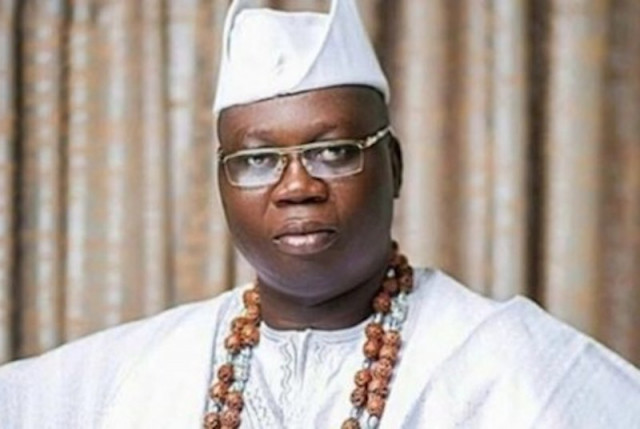Yoruba One Voice (YOV), a pro-Yoruba nation organization, has asserted that for Nigeria to achieve genuine development, it must be founded on regional self-governance and autonomy.
This declaration was highlighted in a communique released after its international conference, themed “Sharia Law in Yorubaland: Setting Things Straight through Restructuring.”
The virtual event featured Prof. Oluwafemi Obayori as a guest lecturer, with YOV Convener and Aare Ona Kakanfo of Yorubaland, Iba Gani Adams, presiding.
It brought together members of the YOV Global Coordinating Council, YOV General Assembly, other key stakeholders, and notable Yoruba individuals from various countries to discuss the controversial proposal to implement Sharia Law in Yorubaland.
YOV argued that the lack of regional autonomy within the political landscape would ultimately compel the Yoruba to seek total liberation and complete political independence for their territories to establish the Yoruba nation. Conference participants emphasized the pressing need to restructure Nigeria’s governance to honor the autonomy and integrity of its constituent nationalities.
The conference called for a comprehensive constitutional amendment to restore local councils' control and economic resources to the regions, to alleviate pressures on the Federal Government, and to enhance grassroots governance.
It also suggested that any religious court systems implemented must be voluntary, limited to civil matters, and adhere to national human rights standards.
Iba Adams criticized the proposal to introduce Sharia law, labeling it an effort to exploit religion for political gain and warning that such a move could threaten regional peace.
He argued that Sharia law would not enhance the region's economic, political, or cultural prospects, especially as Yorubaland is currently recognized as the most economically advanced area in West Africa. He emphasized that Nigeria could not progress without restructuring.
Guest Lecturer Prof. Femi Obayori expressed the necessity for Yoruba people, regardless of their religious backgrounds, to analyze developments in light of their collective identity, Nigeria's security challenges, and the essential need for genuine restructuring as a solution.
Obayori pointed out that while Sharia is not unfamiliar in Yorubaland, particularly in areas like Ilorin and among Islamic scholars during the old Oyo Empire, the recent surge of unregulated Sharia panels and attacks on practitioners of traditional religions, as well as actions against Isese festivals, indicate a cultural affront rather than simple religious observance.
Prof. Kolawole Raheem, a technical adviser to YOV, acknowledged that while Muslim communities in Yorubaland should have access to dispute resolution that aligns with their faith, it must not supersede secular law or violate others' rights. He warned that establishing a parallel religious legal system could lead to increased religious extremism, chaos, and insecurity, mirroring the turmoil seen in other areas of Nigeria affected by banditry and insurgency.
YOV Secretary-General, Adedokun Ademiluyi, also highlighted the importance of Yoruba collaboration with other ethnic groups advocating for restructuring, affirmative action, or autonomy, particularly in the Middle Belt and South-South. He emphasized strengthening community policing and regional security measures to counter outside threats and infiltrations.
In a related statement, the Alaafin of Oyo, Oba Abimbola Owoade 1, urged Nigerians to unite against those causing violence and destruction, particularly those perpetrating senseless killings.
According to the Director of Media and Publicity for the Alaafin, Bode Durojaiye, Oba Owoade conveyed this message to wish Christians a happy Easter.
The Alaafin lamented the ongoing violence and warned that without peace and stability, national development would be unattainable.
He remarked, “It was love that took Jesus to the Cross. If His heart was not willing and overflowing with love, He could not have offered Himself as a sacrifice.”




















